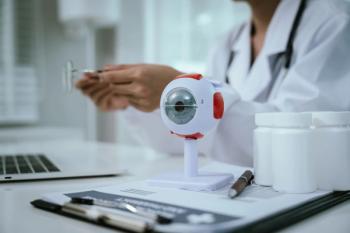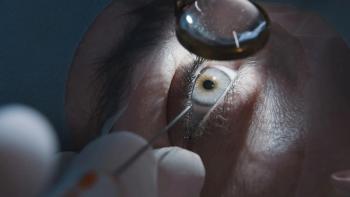
Earning a spot on the medical team
Last month, I wrote about diagnosing my father-in-law’s branch retinal artery occlusion (BRAO) and then teaming up with a vascular surgeon for his subsequent carotid endarterectomy. After the successful “slam dunk” surgery, the nurse who discharged him advised him to “go to the ER” should he have any changes in vision, and in the process, dropped the ball.
Last month, I
Related:
Working as a fist
Duke coach Mike Krzyzewski (by the way, congrats Coach K!), once said, “A basketball team is like the five fingers on your hand. If you can get them all together, you have a fist. That’s how I want you to play.”
Obviously, all of us involved in my father-in-law’s care could have done a better job of talking and working with one another to better coordinate his care. We weren’t a fist. We were five spread fingers, waving in the air, doing our own thing.
The problem started with my father-in-law not being a part of the integrated healthcare system in which I practice. I’m used to typing, pointing, and clicking a patient toward the test, procedure, or therapy needed. When I need a consult, I hail the proper provider or clinic on my team. They recognize my digital “hand signal,” smoothly catch the ball, and go to the hoop. Well, most of the time anyway.
Are you a part of the team?
Working outside that system requires old school paper notes, faxes, and phone calls, especially if the need is urgent and time critical. Until such time that our various electronic medical records stop all their babbling and start talking to each other (please, try to stifle your laughter), we’re going to have to continue to do the extra work needed for smooth passes and handoffs. I should have called my father-in-law’s primary care provider from the get-go or passed the ball directly to the vascular surgeon when I first spotted the BRAO. I got a little lazy, and his care was delayed when the play broke down.
Related:
On the other end of the play, the nurse who read the scripted, check-off discharge list and told my father-in-law to go the ER if he had vision problems after surgery wasn’t even aware of my existence or what constitutes best practices for patients with sudden vision loss.
That’s further proof of lack of integration but also a public relations problem. Even if she had known, would she have recognized me as a team player? Or how about her bosses (who wrote the script), or even the ER staff, where my father-in-law could have ended up if he didn’t know better?
Over 40 years post-LaGuardia, optometrists still have trouble being recognized as part of the medical team. Some of that is the result of interminable turf wars and professional rivalries, granted. For some healthcare professionals and members of the public, optometrists will never be considered full team players, regardless of how good we become, because we have the “wrong initials” behind our name.
Our responsibility
However, we ODs don’t get off scot-free. We sometimes show up for the game too causally, not geared-up for the big time. We spend too much time obsessing over what’s on our frame boards, contact lens profit margins, and “board certification,” rather than doing the difficult work of learning how to think, speak, and act medically.
We hunker down in our optometric silos and don’t “get out enough.” We are too self-conscious and lacking in confidence. As a result, we fail to spread the good news of what we can do for our patients-and other members of the healthcare team.
This is not another tired, old private practice vs. commercial rant (please, people, give it a rest). Instead, it’s a reflection on how we all, regardless of setting, bear ourselves as professionals. Professionalism entails lifelong learning, courtesy, conscientiousness, and a business-like manner when interacting with patients and other healthcare teammates.
It’s all about respect
But it also involves treating fellow ODs with respect and granting the benefit of the doubt that, for the most part, we’re all doing our best in difficult times. We’re more apt to be on our best behavior in person, but what about our exchanges in online optometric forums? I’ve noticed an increased tendency toward online “bullying” in these settings.
When we see sports teams’ members turning on each other in times of stress, we know intuitively that things aren’t going to end well. If we don’t treat each other with respect, then why should we expect those outside our profession to treat us any better?
Related:
For those of you diving for loose balls like Grayson Allen, keep up the good work. For those of you shuffling up and down the court like an entitled NBA center, please hustle harder. People are watching (and judging), and our profession’s future depends on your best efforts.
Five fingers-closed as a fist-can get the job done. Coach K is right, as usual. And I would say that even if I were a Kentucky fan.
Newsletter
Want more insights like this? Subscribe to Optometry Times and get clinical pearls and practice tips delivered straight to your inbox.





